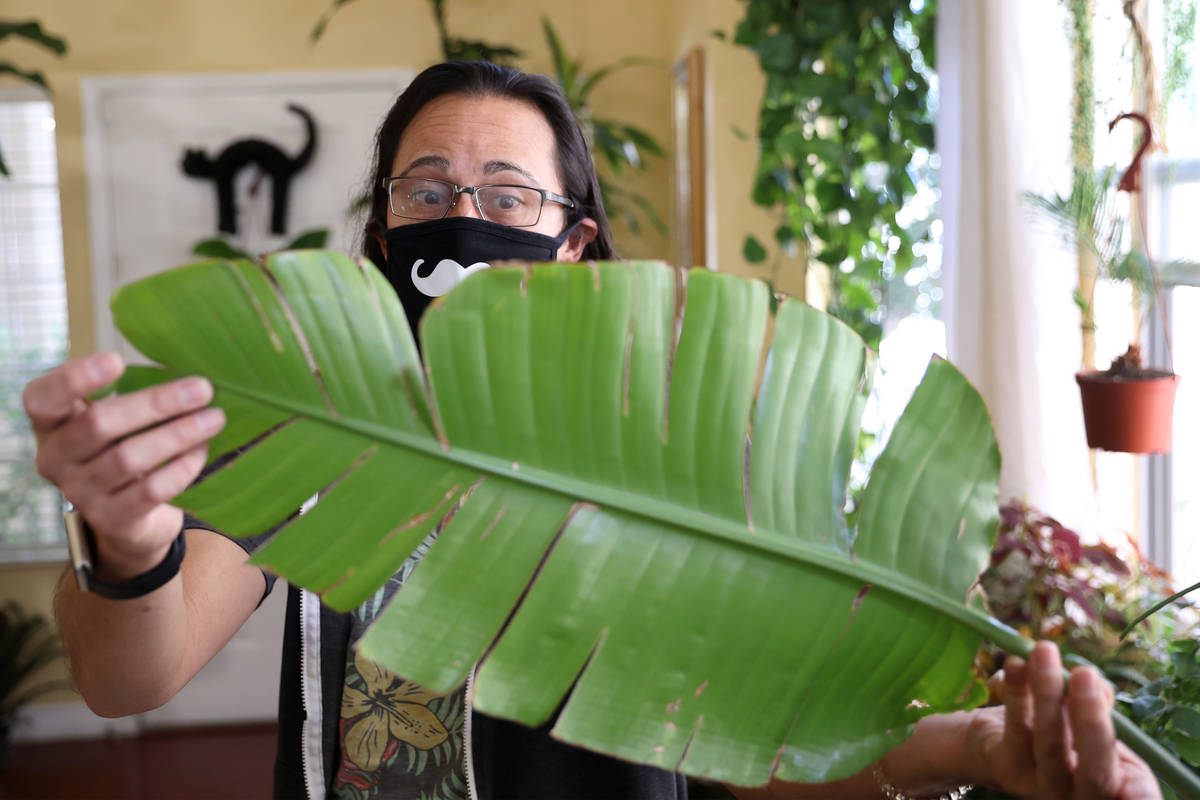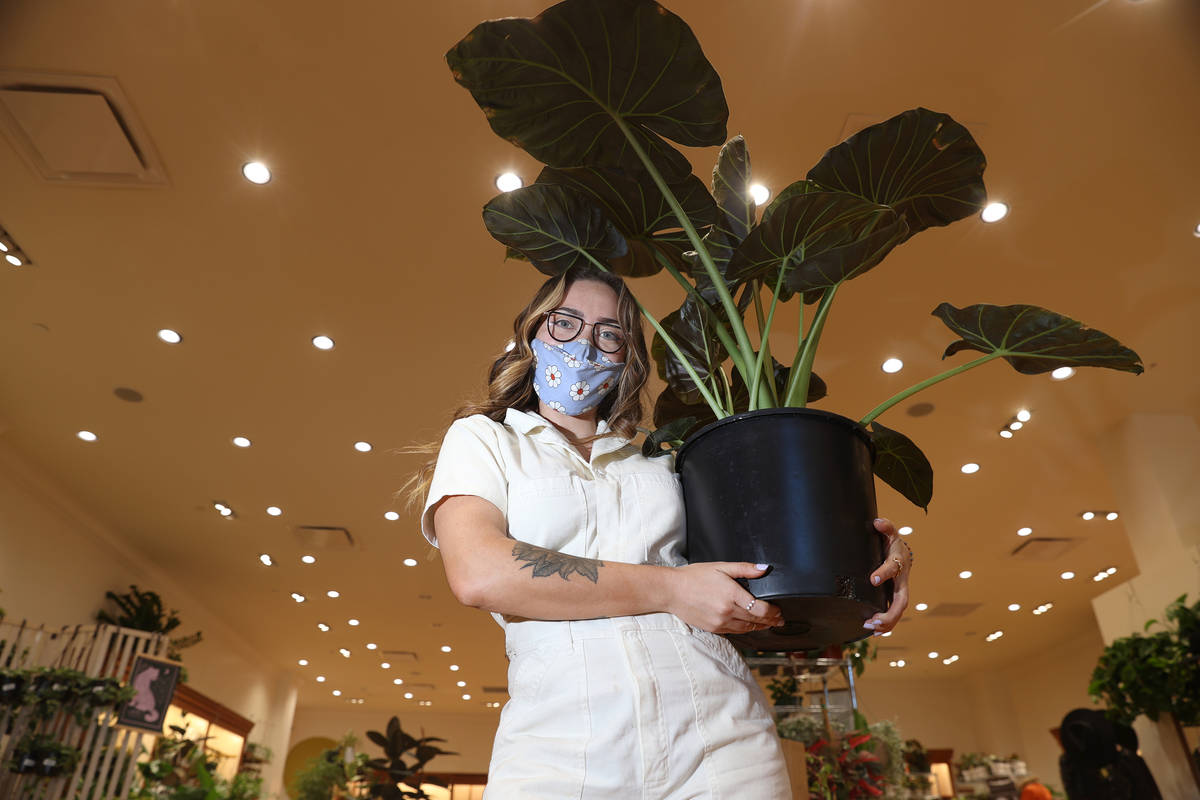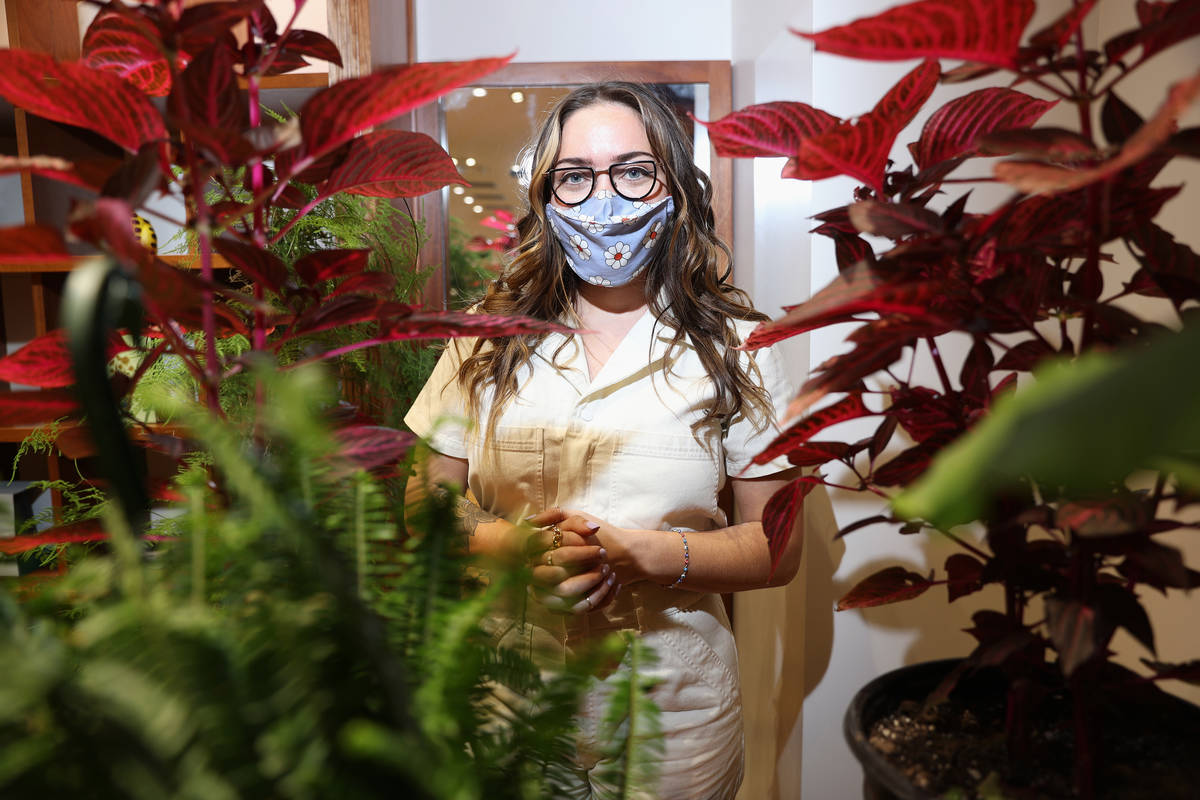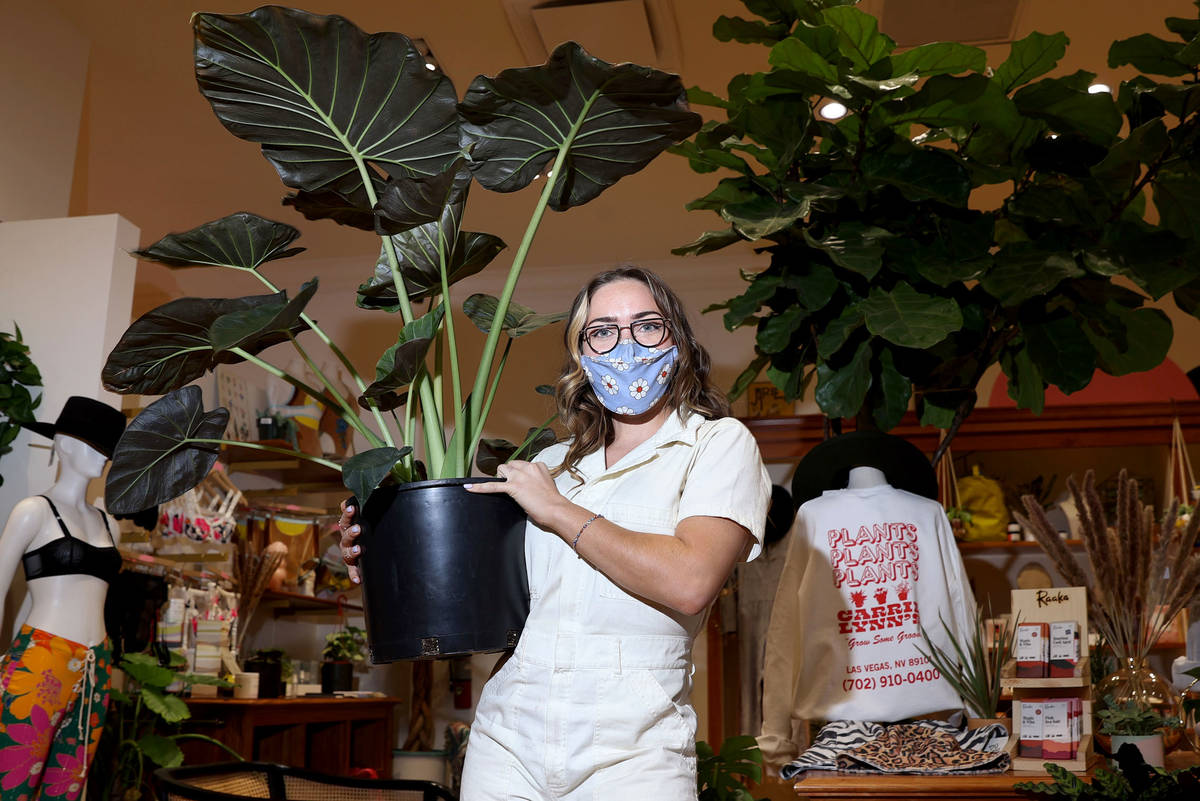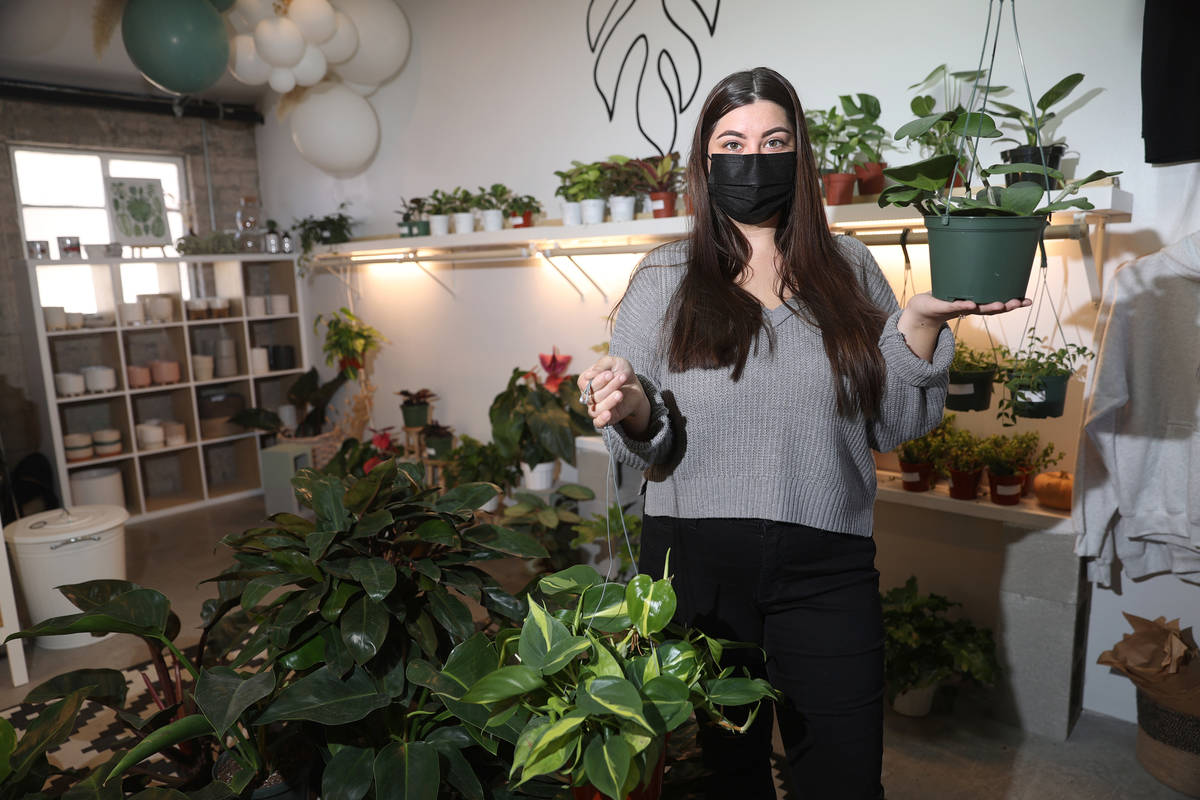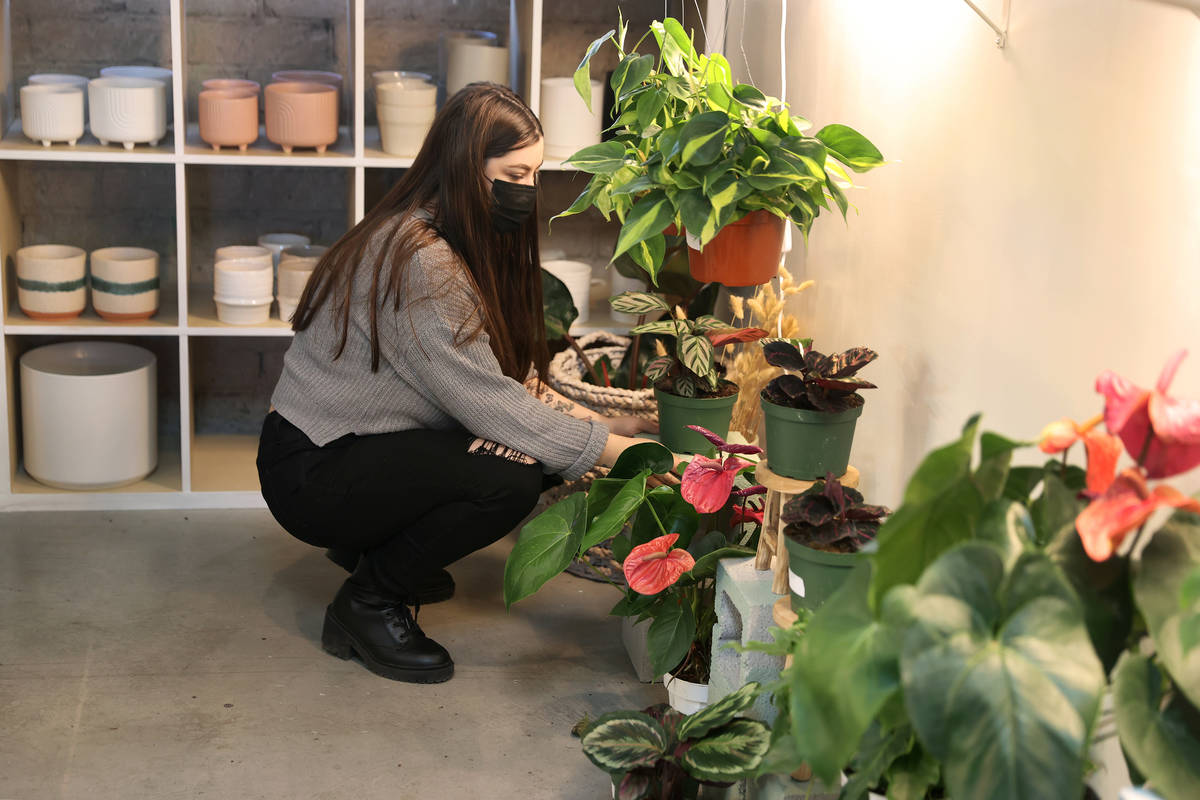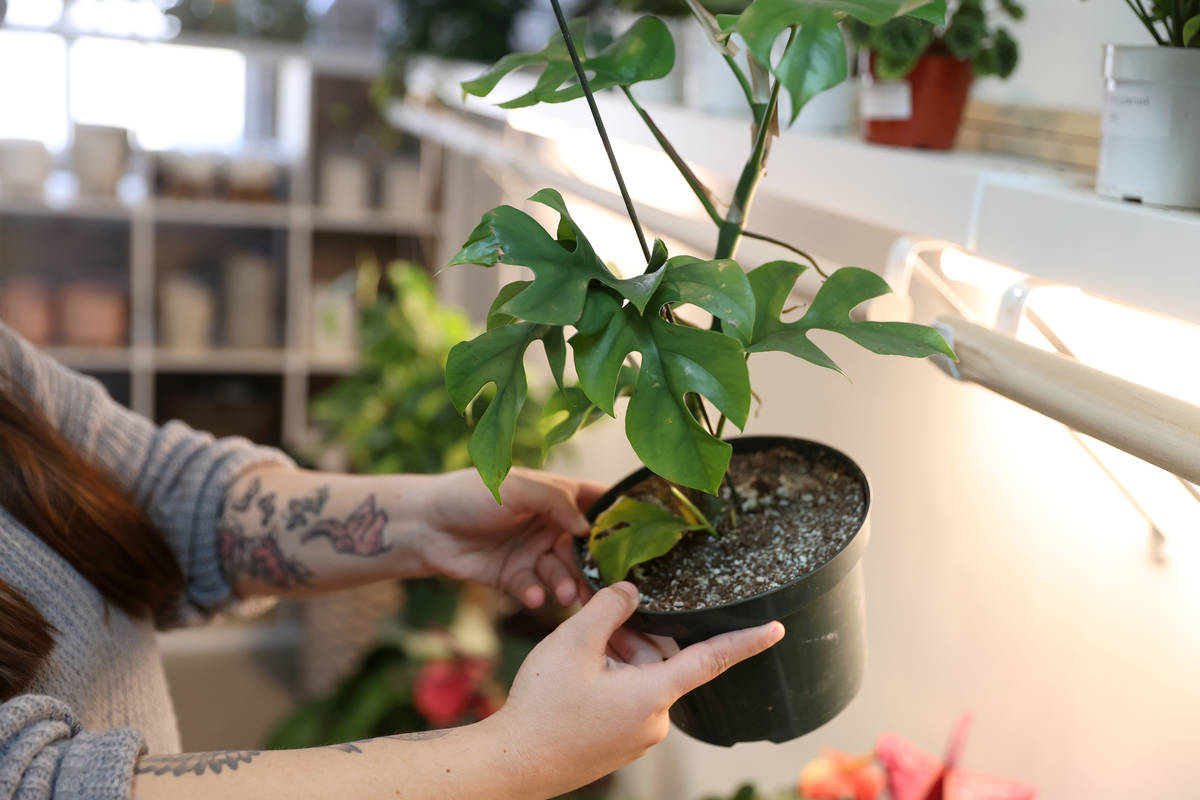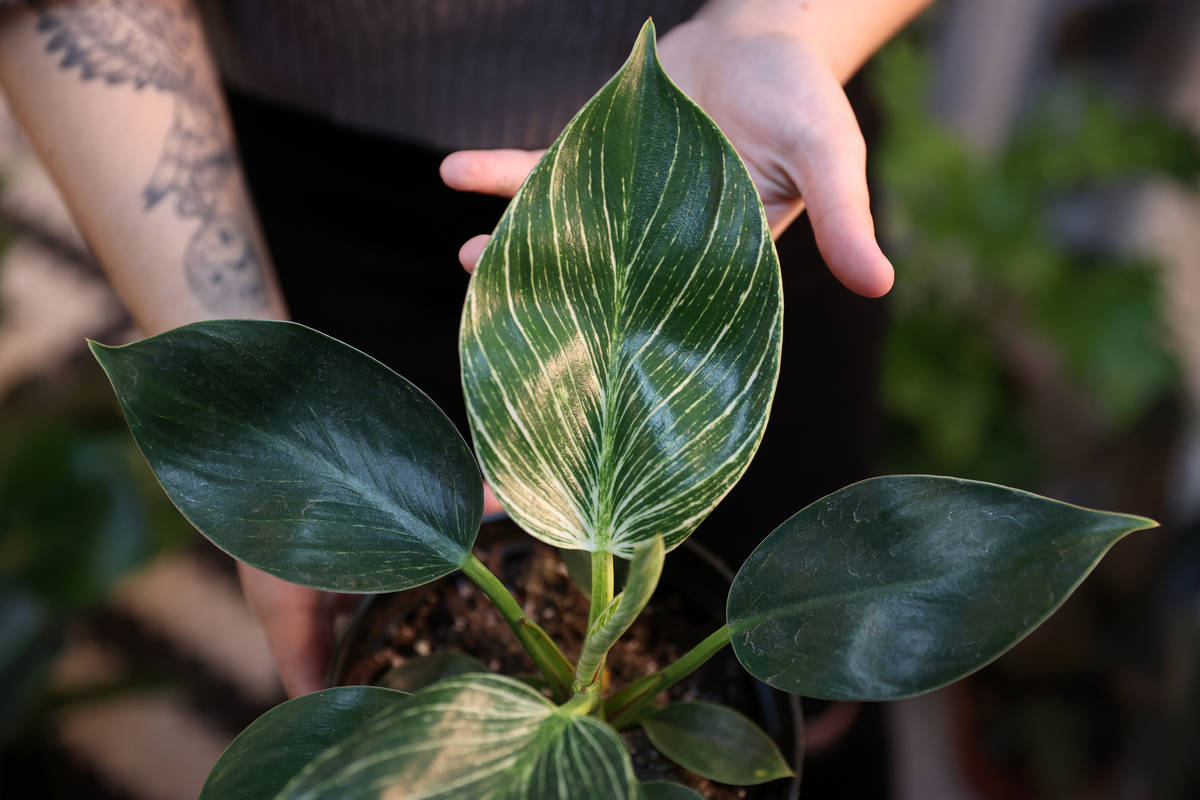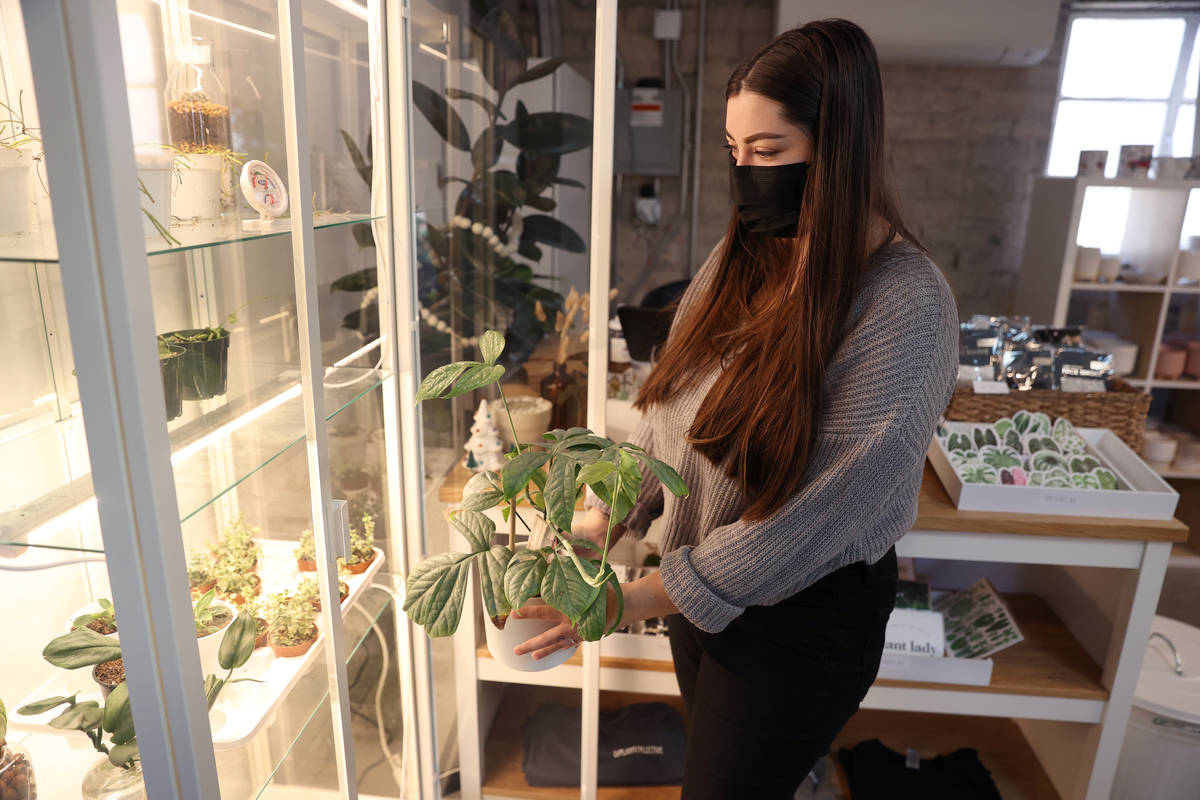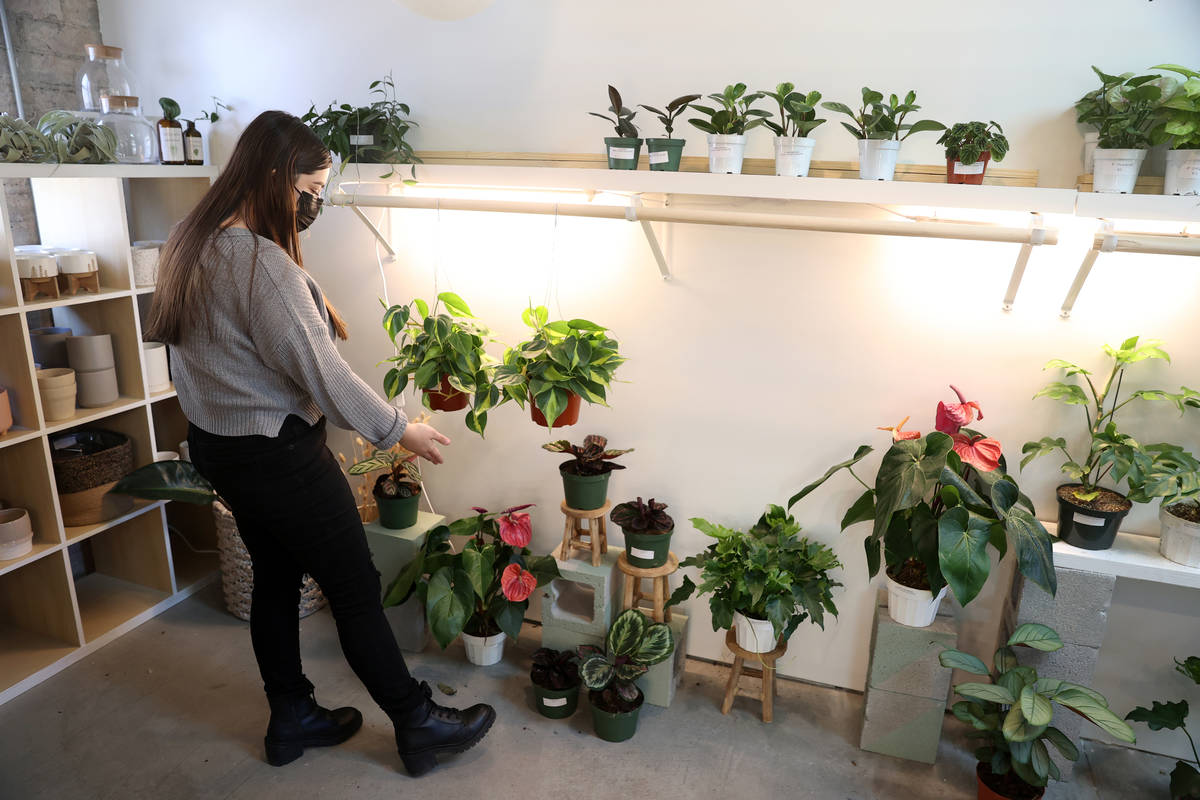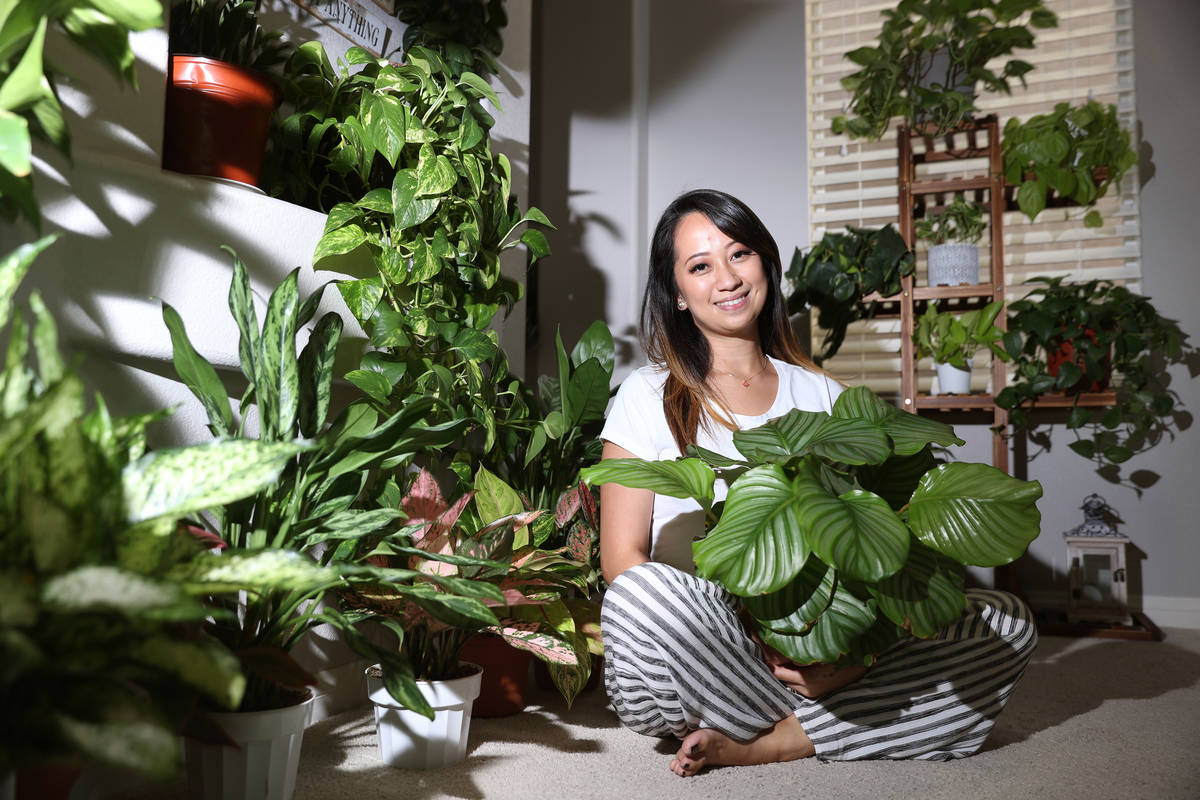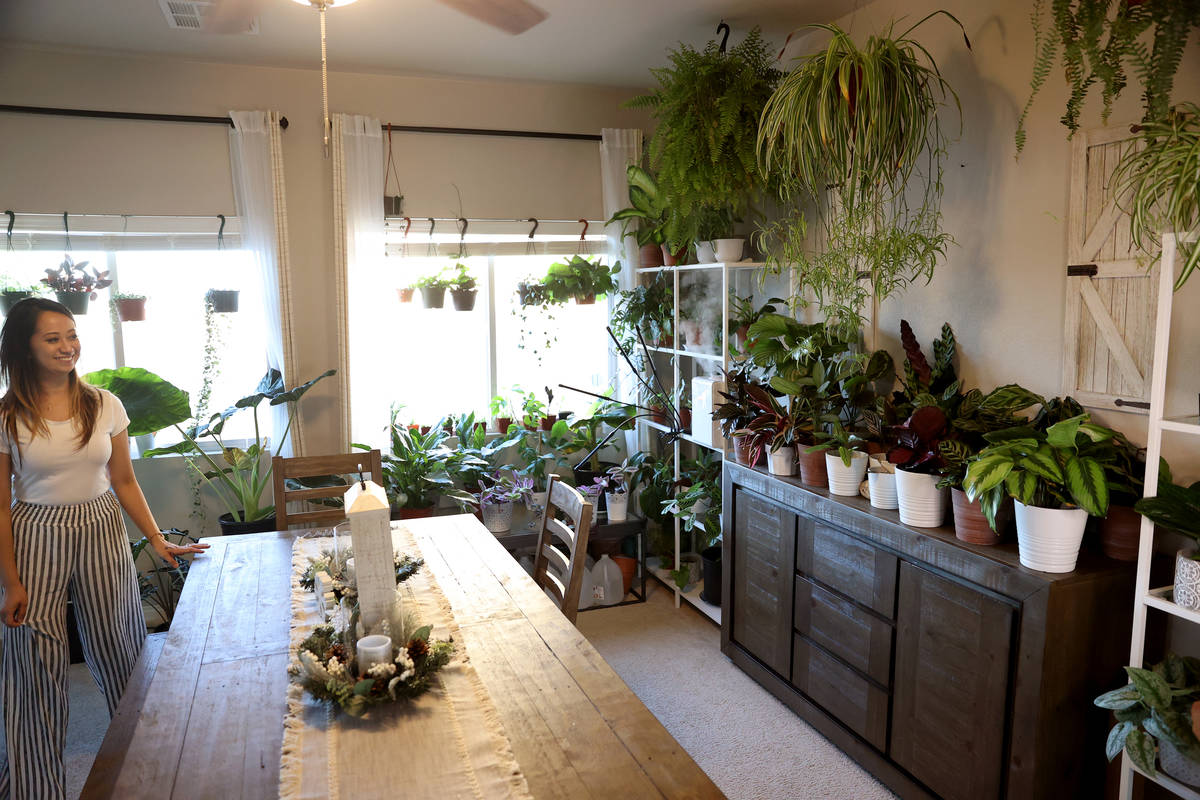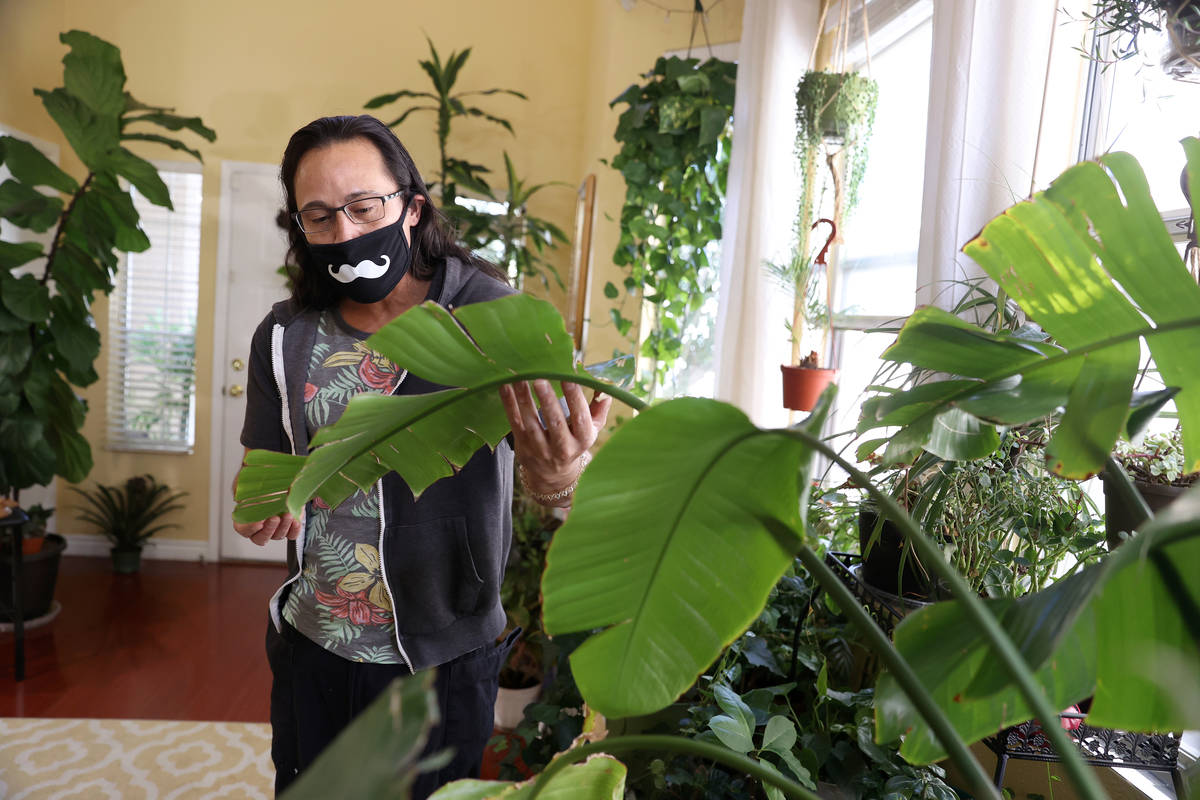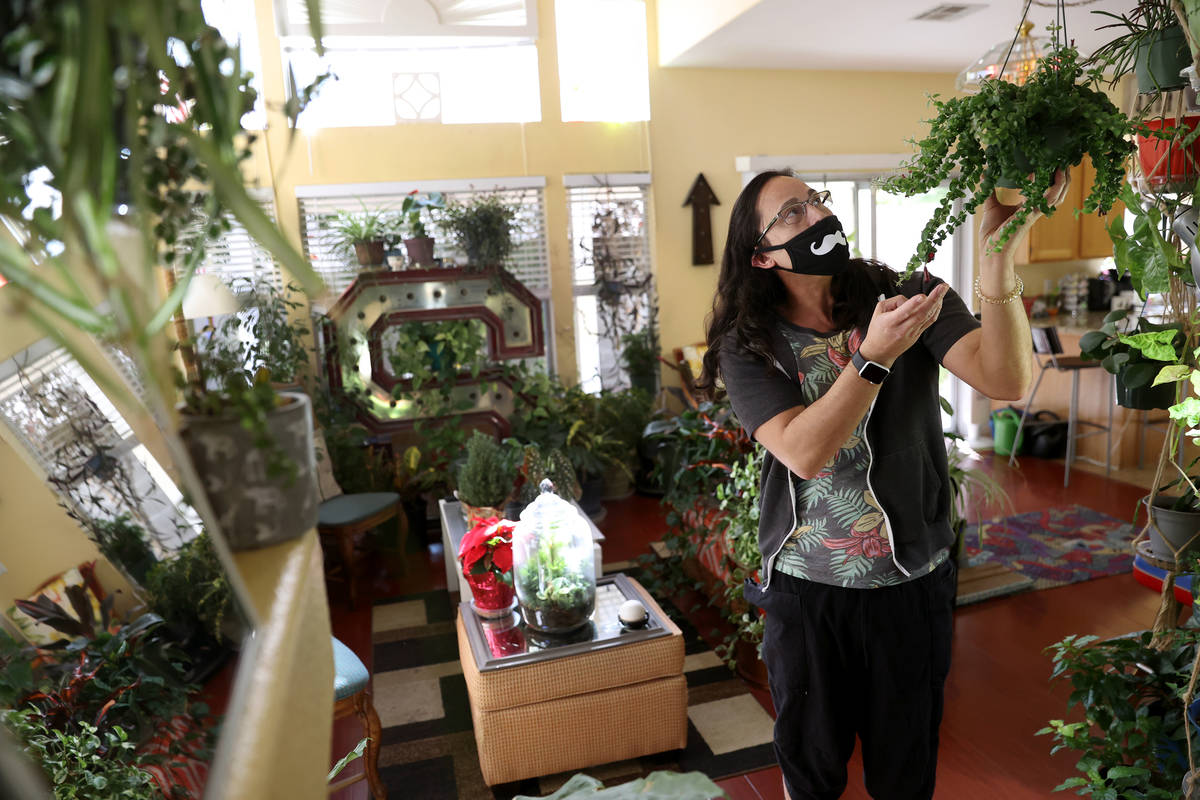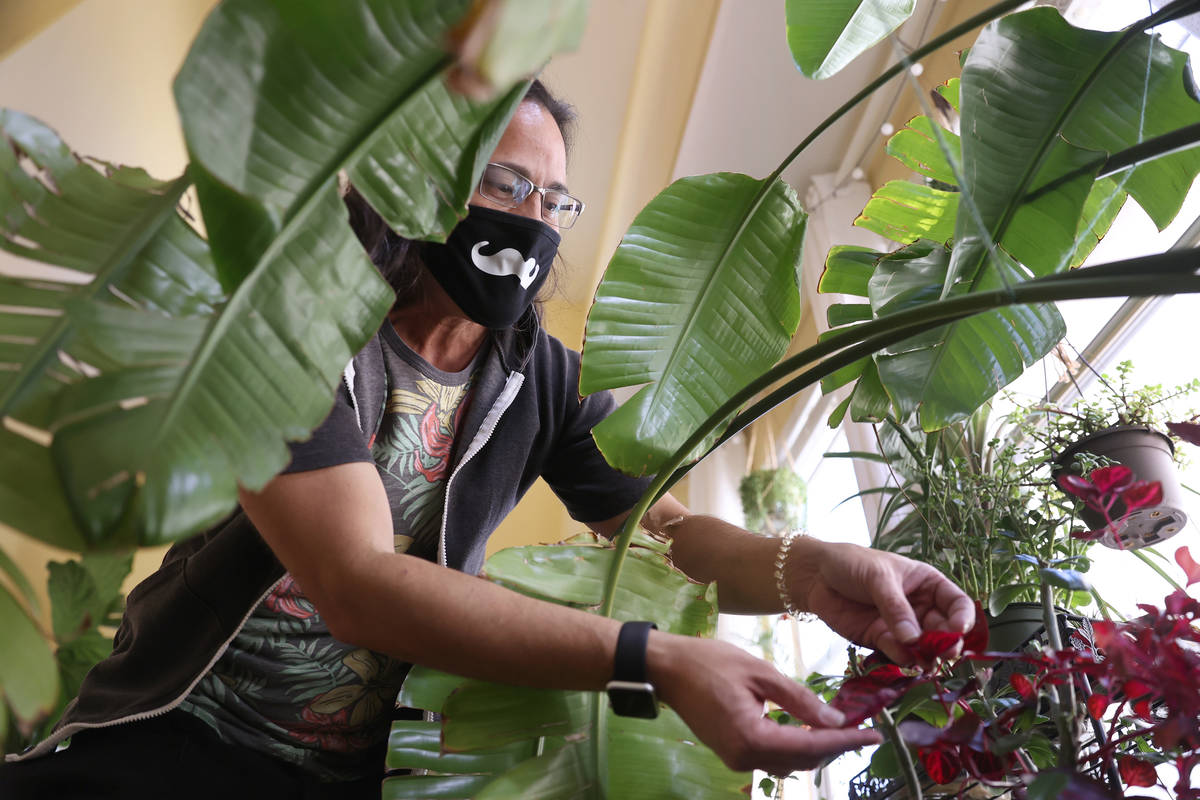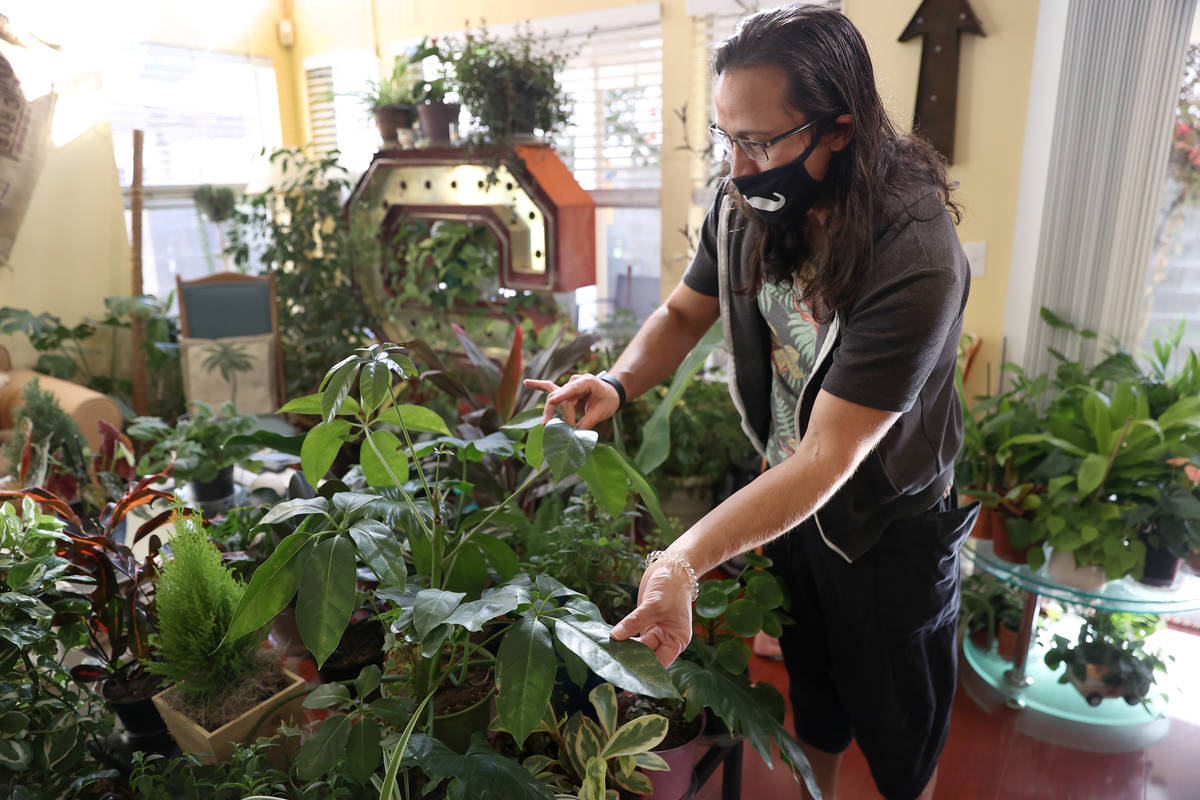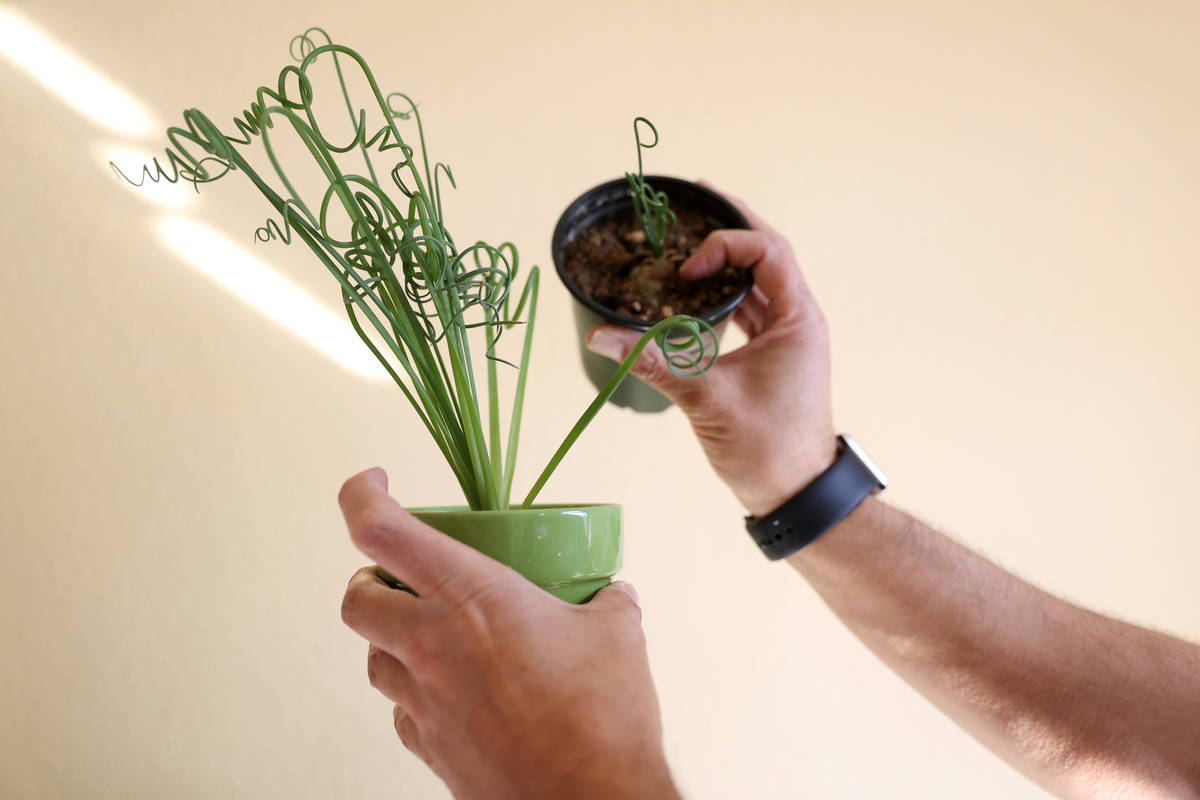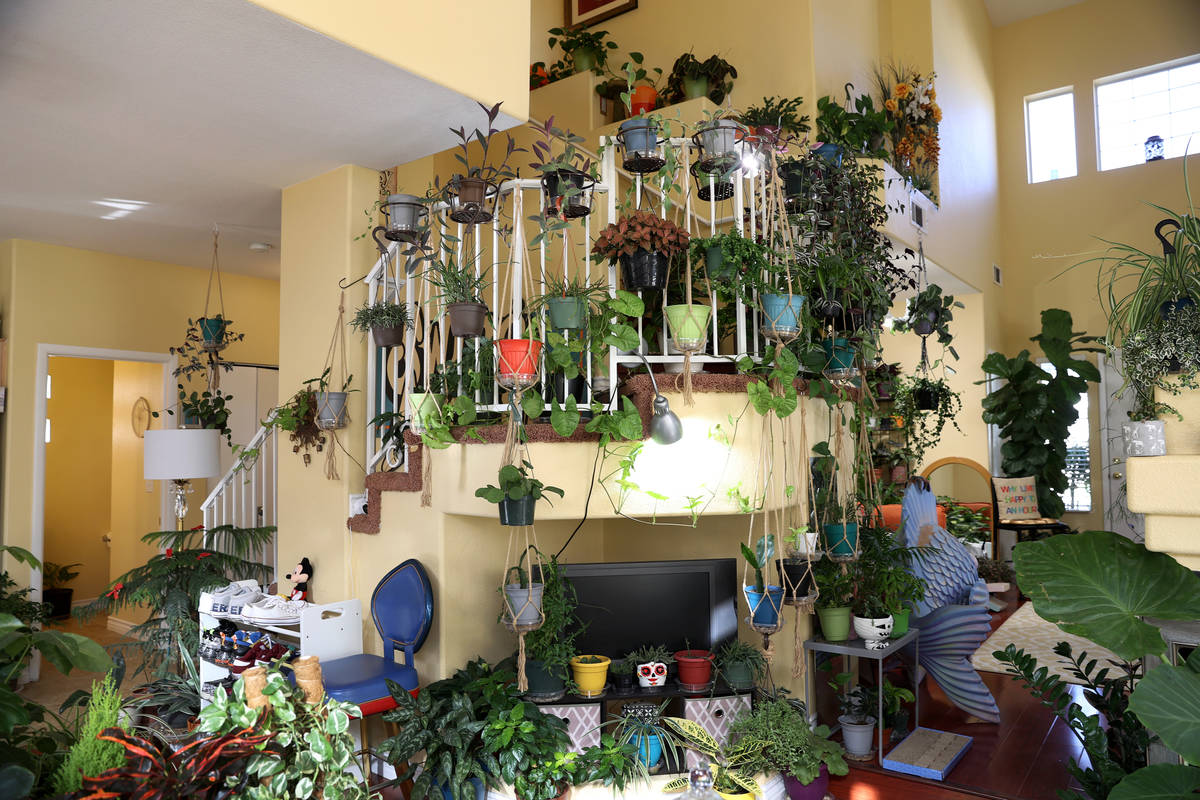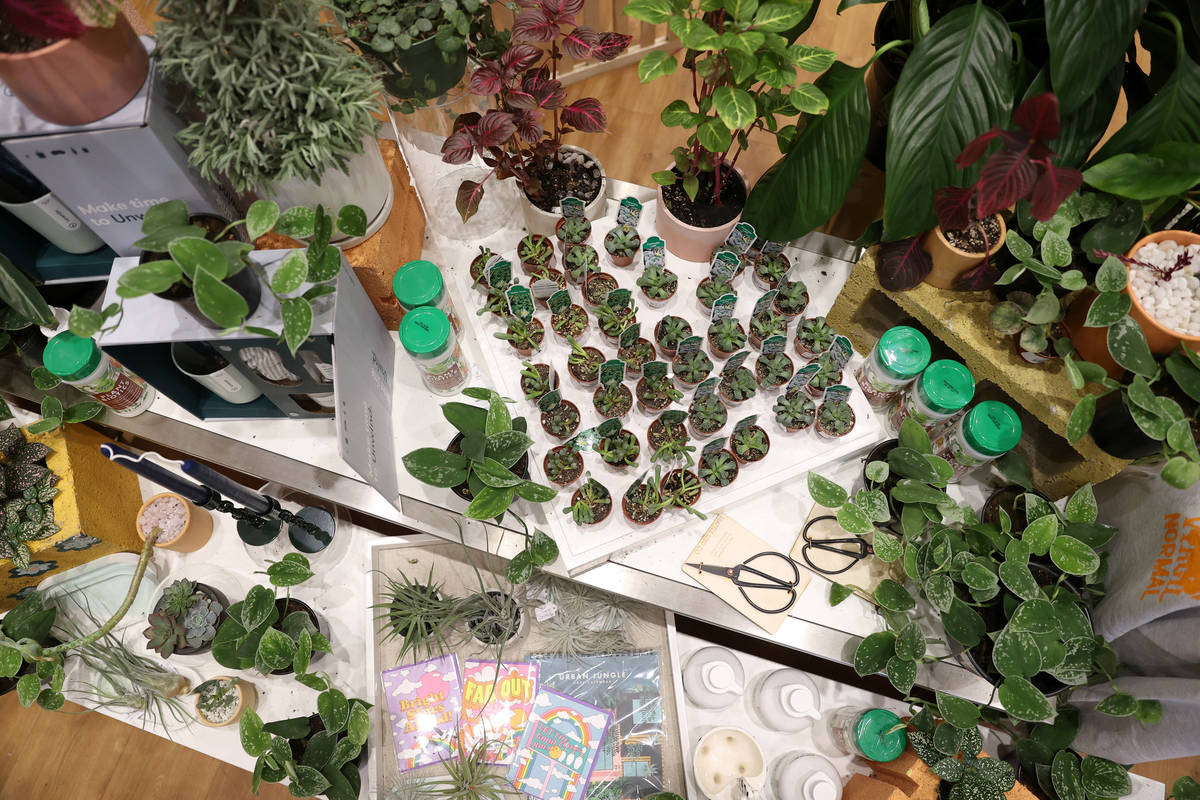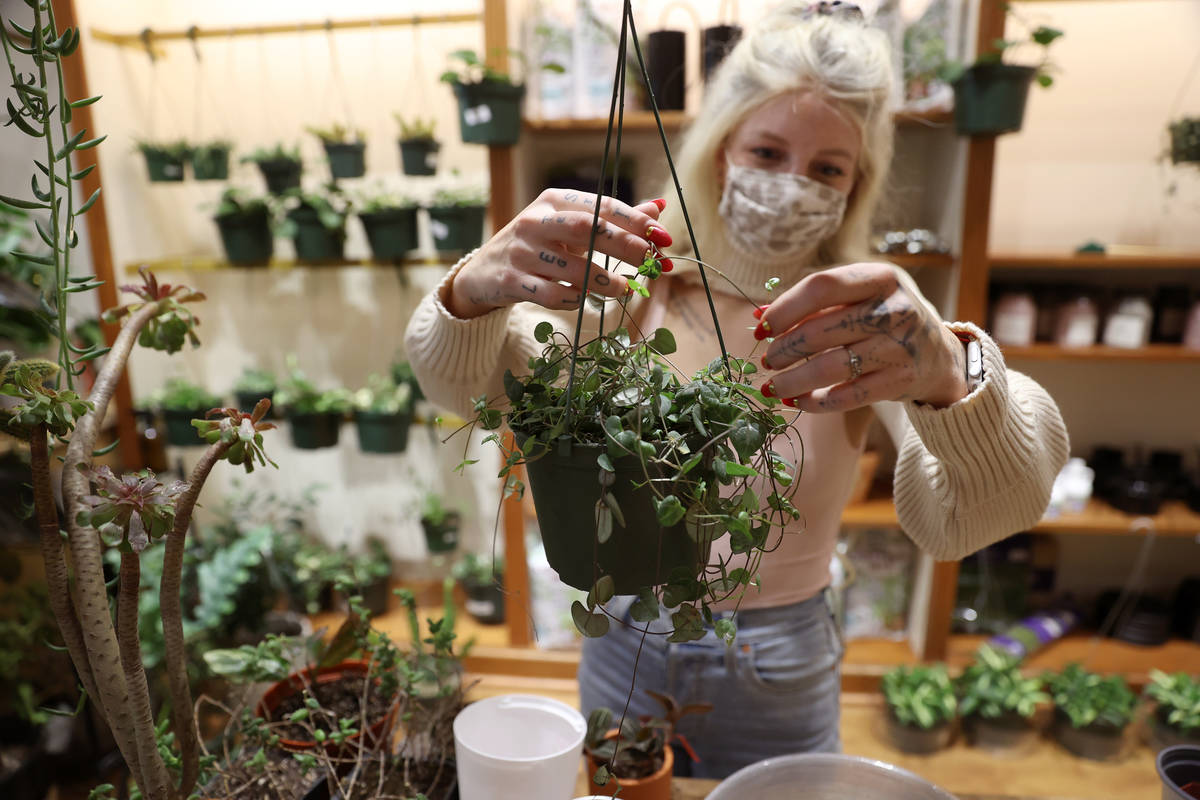Plants a thriving business, hobby in Las Vegas amid pandemic
The Las Vegas plant community has blossomed during the pandemic, a trend that stemmed from people spending more time at home, shop owners say.
“There’s been a surge of plant lovers recently and a lot of people come in. I ask them when they got into plants and most of them have been in the past six to eight months,” said Brooklyn Martell, owner of Carrie Lynn’s Plant Shop in Downtown Summerlin, which Martell named after her mother.
“And I think what’s fueling that is people are not going out as much and they’re wanting to connect with something,” she said. “You’re stuck at home, and it’s a way to really focus your attention on a relationship that you can foster.”
Before she opened her first shop in December 2019, Martell hosted plant swaps with the purpose of meeting plant people like herself.
“I quickly found that there were a ton of plant lovers, and I wasn’t alone,” Martell said. “Each event was getting larger, and I saw that there was a desire and a need for a plant boutique.”
Finding their green thumb
Carissa Beasley, owner of LV Plant Collective in Fergusons Downtown, 1028 Fremont St., began her journey in 2019, collecting plants and sharing care tips on her social media before she began selling them and growing her brand.
“I would say the house plant community has boomed,” Beasley said. “My (Instagram) followers have doubled since the beginning of March, which is amazing. It seems like everybody who didn’t think they had a green thumb took this time during COVID to figure it out.”
Selling through social media, Beasley was able to make safe, contactless deliveries. Before opening her store in early November, she launched her website in September and sold out in minutes.
“September was an amazing month; it really skyrocketed me into being able to open the store,” Beasley said. “I saw how many people were eager to get new plants into their home, and that’s definitely what gave me the motivation.”
Although Clariselle Felias’ life as a wife, mother of two and UNLV nursing student can get hectic, she felt the desire for something new after spending months at home because of the pandemic. With no previous experience and a fear of killing the plants, one day in June, Felias decided to buy 10 plants at once.
“I’ve never had a hobby, but taking care of them is more than a hobby. It’s a part of your life that you really, really love,” Felias said. “It’s a therapy. Even though sometimes you worry about them like ‘oh my gosh, there’s a yellow leaf,’ but then at the same time watching them grow is like watching my kids grow.”
Felias turned to the internet to learn about her plants and how to care for them. She killed a few by accident, but with patience she grew her collection to more than 100 plants. In August, Felias began buying and reselling plants with her best friend on social media as a side gig.
‘What would nature do?’
For TJ Dahna, taking care of plants is part of his daily routine. He takes 30 minutes in the morning to check on each of his 1,200 plants to see how they are doing, asking if they’re “happy today.”
His plant journey began growing up in Central Valley, California, surrounded by agriculture and his mom’s plant collection, which helped him cope with her death when he was 12.
“Having these plants around me on a daily basis while working, while dealing with family stuff, I just feel that it grounds me,” Dahna said. “Instead of ‘What would Jesus do?’ in a religious sense, when I have an issue and I have this little ficus in front of me, I look at the ficus and I ask, ‘What would nature do? What would nature do to overcome this hurdle?’”
Dahna, an avid plant collector for 22 years, has used his knowledge recently to help guide and educate the new plant parents through social media groups. He says 98 percent of the problems people encounter with their plants are due to overwatering.
“I think that this (staying home) has given them the opportunity to just kind of look at their home environment, see how plants can enhance the decor and the vibe of the living space,” Dahna said. “And people are discovering that there’s pride in taking care of another living thing.”
Unfortunately, because of the boom in the business and interest in the hobby, some resellers online and on social media might take advantage of new plant owners and overcharge for their plants, Dahna said.
“Here in Las Vegas, our suppliers, our nurseries and our local plant stores really take care of us,” he said. “What I’ve noticed is some people online price gouge the common plants with high demand. Someone who wants to get a cute little hoya kerrii — that’s usually $4 — and learn about it and they see it for $40, it might turn them away from a hobby that could really bring them joy.”



